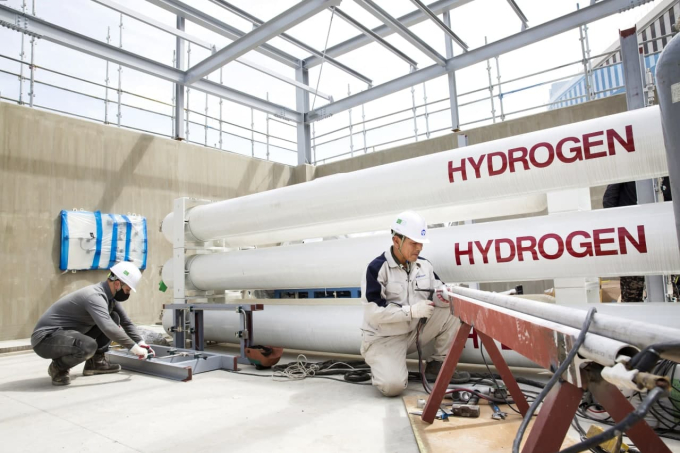Hydrogen energy
Hyosung, Linde to create world's largest liquid hydrogen plant
By Feb 05, 2021 (Gmt+09:00)
1
Min read
Most Read
S.Korea's LS Materials set to boost earnings ahead of IPO process


CarlyleŌĆÖs Rubenstein sees commercial real estate undervalued


Samsung Electronics' key M&A man returns; big deals in the offing


Money pours in for technology to reshape Korean restaurants


CJ CheilJedang to sell feed, livestock unit for $1.4 bn



South Korea-based Hyosung Heavy Industries Corp. and global industrial gas supplier Linde plc. have agreed to establish the world's largest liquid hydrogen plant via two joint ventures to expand their presence in the hydrogen energy market.
On Feb. 5, Hyosung Heavy announced that the two companies have agreed on the partnership to boost their liquid hydrogen operations. In the deal, new JVs will be established ŌĆö Linde Hydrogen Corp and Hyosung Hydrogen Corp.
The first JV, Linde Hydrogen, will handle liquid hydrogen production, with Linde holding a slightly higher 51% stake and Hyosung Heavy holding 49%.
The second JV, Hyosung Hydrogen, will be responsible for distribution and sales, with Hyosung holding the 51% stake and Linde having a 49% stake.
Last April, Hyosung Group Chairman Cho Hyun-joon signed an initial agreement with Linde to create a value chain for the production and transportation of liquid hydrogen as well as the installation of charging stations.
Moving forward, Linde Hydrogen will construct a liquid hydrogen plant at Hyosung Chemical Corp.'s Yongyeon site in Ulsan by early 2023. Upon completion, the world's largest liquid hydrogen plant will produce 13,000 tons of liquid hydrogen annually, enough supply to power 10,000 hydrogen cars for a year.
The plant is estimated to be worth around 300 billion won ($267 million).
Hyosung Hydrogen will oversee the distribution and sales of liquid hydrogen. The company plans to install 120 charging stations nationwide.┬Ā
"We plan to solidify our position as a leading player in the hydrogen industry by establishing a value chain from the production of hydrogen energy to its distribution," said Chairman Cho.
The Korean textile and chemicals conglomerate has been ramping up its efforts to sell assets and list major subsidiaries to raise funds to invest in new growth drivers, including hydrogen, carbon fiber manufacturing and data centers.┬Ā
Write to Jae-kwang Ahn at ahnjk@hankyung.com
Danbee Lee edited this article.
More to Read
-
 Investment fundsSK, ChinaŌĆÖs Geely eye investment fund for hydrogen, eco-friendly business
Investment fundsSK, ChinaŌĆÖs Geely eye investment fund for hydrogen, eco-friendly businessJan 27, 2021 (Gmt+09:00)
2 Min read -
 Fuel cell plantsHyundai inks deal to build first overseas hydrogen fuel cell plant in China
Fuel cell plantsHyundai inks deal to build first overseas hydrogen fuel cell plant in ChinaJan 15, 2021 (Gmt+09:00)
2 Min read -
 Specialty chemicalsS.Korean chem firms look to specialty chemicals to drive growth
Specialty chemicalsS.Korean chem firms look to specialty chemicals to drive growthJan 17, 2021 (Gmt+09:00)
4 Min read -
 Elastic textilesHyosung to expand spandex capacity on home clothing demand
Elastic textilesHyosung to expand spandex capacity on home clothing demandDec 03, 2020 (Gmt+09:00)
2 Min read
Comment 0
LOG IN


